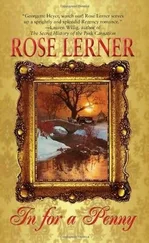They were meeting at a bar in Dumbo far from any train. When the sun had set, he decided to take a long walk, eventually make his way there. It was still unseasonably warm but there was now an implication of winter in the air. Lights and voices looked and sounded different within it, sparkled more, carried farther. He turned left onto Atlantic from Fourth Avenue, the adhan issuing from the mosque’s crackling speakers, and slowly walked the mile and a half to the Promenade. He leaned against the iron railing; the intensities of Manhattan loomed across the water.
Eventually he turned from the river and wandered back through Brooklyn Heights. On a small cobblestone street that dead-ended unexpectedly, some conspiracy of brickwork and chill air and gaslight gave him the momentary sense of having traveled back in time, or of distinct times being overlaid, temporalities interleaved. No: it was as if the little flame in the gas lamp he paused before were burning at once in the present and in various pasts, in 2012 but also in 1912 or 1883, as if it were one flame flickering simultaneously in each of those times, connecting them. He felt that anyone who had ever paused before the lamp as he was pausing was briefly coeval with him, that they were all watching the same turbulent point in their respective present tenses. Then he imagined his narrator standing before it, imagined that the gaslight cut across worlds and not just years, that the author and the narrator, while they couldn’t face each other, could intuit each other’s presence by facing the same light, a kind of correspondence.
Reggaeton from a passing car returned him to himself. He checked his phone for the time and directions to the bar and walked underneath the roaring bridges into Dumbo, his hands cold with anxiety as the meeting place drew near. He was late enough now that he assumed Hannah would have already joined Josh and Mary. He found the address — no sign, just a single exposed bulb near the door — touched his face to see if it was greasy, would be shiny, but found it dry. Then he located the little packet of breath strips in his coat pocket. When he tried to place one on his tongue, he realized he’d accidentally removed several mentholated strips at once; they congealed into a gummy mass, which he spat onto the sidewalk.
The bar was twilit in the speakeasy fashion, dark wood and a tooled tin ceiling, most of the seating in paneled booths, no music. It was quiet enough that he could hear the bartender shaking one of the artisanal cocktails whose prices he was resolved not to complain about aloud, and he immediately saw Josh, whose face was at this point mainly beard, and Mary, who was wearing a hat, a cloche he’d already decided was a mistake, in a corner booth across the room. He couldn’t see Hannah, who was behind a panel, but inferred her presence from Josh and Mary’s postures, the nature of Josh’s wave, maybe the number of glasses on the table.
Would you know what he meant if the author said he never really saw her face, that faces were fictions he increasingly could not read, a reductive way of bundling features in the memory, even if that memory was then projected into the present, onto the area between the forehead and chin? He could, of course, enumerate features: gray-blue eyes, what they call a full mouth, thick eyebrows that she was probably careful to have threaded, a small scar high on the left cheek, and so on. And sometimes these features did briefly integrate into a higher-order unity, as letters integrate into words, words into a sentence. But like words dissolving into sentences, sentences into paragraphs and plots, combining these elements into a face required forgetting them, letting them dematerialize into an effect, and that somehow never happened for long with Hannah, whom he was now beside.
Who was in profile three drinks later, laughing at Josh’s high-pitched imitation of their boss, petty tyrant of the production company where they edited film. He watched her tuck strands of black hair behind her ear, noted its pointed helix, only now perceiving her nose ring, silver but appearing rose gold in that light. Then, Josh and Mary gone, they were side by side in the booth, leaning against each other a little more with each drink, and he was saying these things about faces to her, how it’s important for a writer to be “bad with faces,” and she asked if he had ever seen the satellite image of that rock formation on Mars — one of those standard textbook images used to illustrate pareidolia , a term he’d never heard. It’s when the brain arranges random stimuli into a significant image or sound, she explained: faces in the moon, animals in clouds. She took out her phone and Googled it, and he used the excuse of looking together at the little glowing screen to press more closely against her.

* * *
On the wall behind Dr. Roberts hung a tactically inoffensive abstract painting, rhythmic brushstrokes in lavender, blue, green — very competently executed visual Muzak. If you asked the author what Roberts looked like, he would conjure the painting rather than the face.
Roberts said, “I understand your writing has garnered some attention, but how exactly would you, in your early thirties, have any papers that a university library would be interested in collecting?”
The author said he shared Roberts’s surprise and paraphrased the special-collections librarian: because he’d been “particularly precocious,” her phrase, and because in his twenties he had co-edited a small and now-defunct but influential literary magazine, they suspected he might already be in possession of a “mature archive.” Moreover, collecting practices were changing, and papers were now often sold in increments. They’d buy, let’s say, a third of the author’s papers now, then acquire the other two installments across the years. Since he would presumably want all his papers in one place, there was an institutional interest in establishing a relationship early, to invest in him. The author pronounced “papers” in a way that made it clear he was placing the word in quotes.
“And do you have a ‘mature archive’?” Roberts asked. He seemed to like the phrase.
“No,” he said. “Almost all the correspondence about the magazine was e-mail, and I had a different e-mail account for much of that time. I never printed anything. What I do have is boring, logistical. And in terms of my own work”—he was trying not to place “work” in quotes—“I don’t write by hand and don’t save drafts on the computer.”
“What do you have?”
“Oh, massive and obsessive electronic correspondence with my best writer friends that’s poorly written and full of gossip and shit-talking and divulges all manner of embarrassing information. I have a folder full of postcards from authors, some of them famous, politely thanking me for sending them my book.”
“Do libraries buy e-mails?”
“Apparently they’re starting to. Electronic archives. She said everything is changing as the technology changes. But they wouldn’t want anything I have. And I wouldn’t want anyone to see it, even after I’m dead.”
Roberts made a pause that italicized the author’s last four words, silence that had the same effect as repetition.
“A year ago, this would have been weird and silly and flattering, their interest, and now it seems like some institutional premonition that I’m going to die.”
“There is no evidence that your condition is going to worsen,” Roberts repeated, without impatience, for the thousandth time.
“I’m also surprised to find,” the author said, ignoring him, “that I want to have ‘papers,’ want to leave and be left those traces, that it would authenticate me.”
Читать дальше











